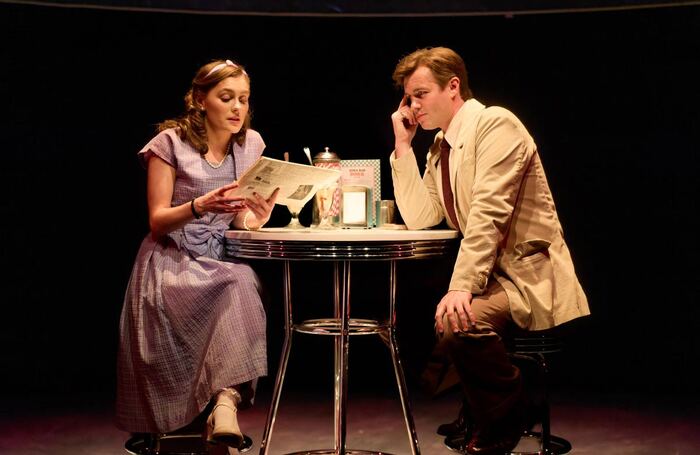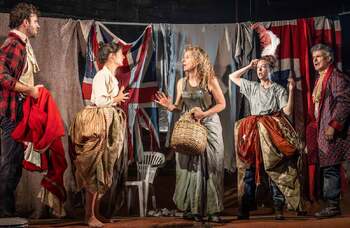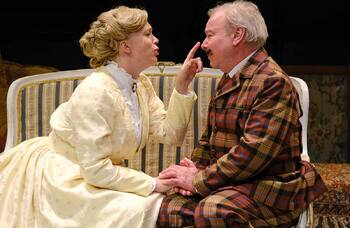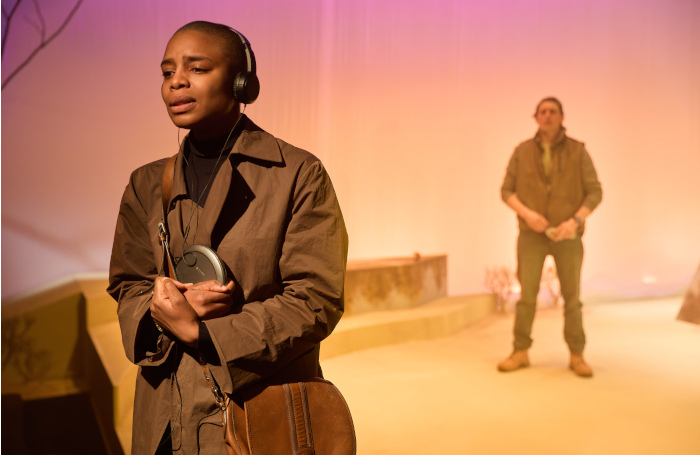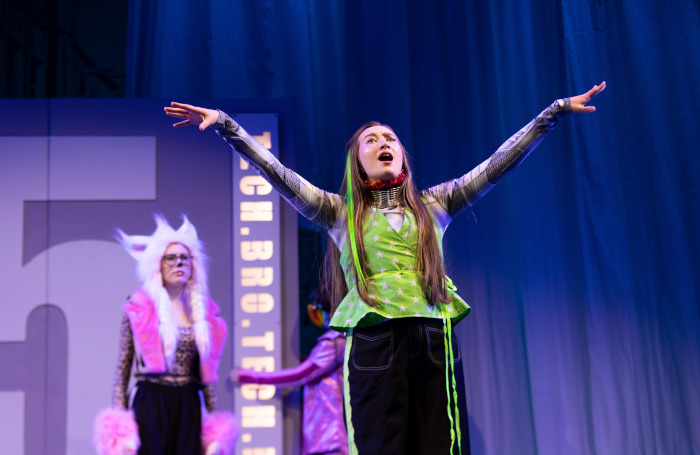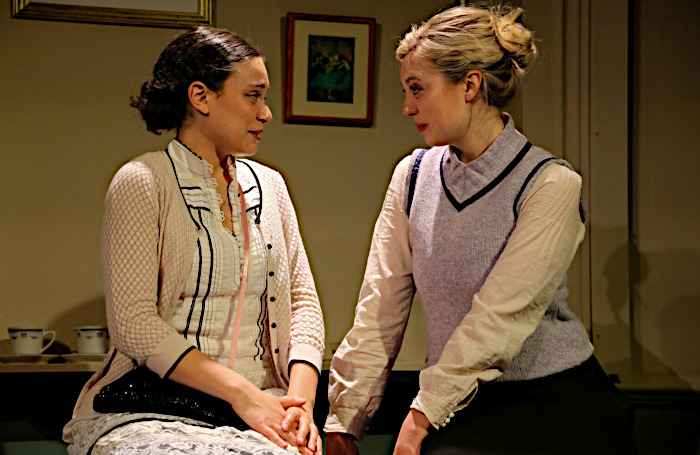The Lightest Element review
Slight, unfocused drama about women overcoming barriers in 1950s academia
Based on the life of pioneering astronomer Cecilia Payne-Gaposchkin, whose groundbreaking research on the composition of stars revolutionised astrophysics, this overly discursive biography from Stella Feehily never really gets off the ground.
Feehily’s story focuses on the fraught confirmation process that would ultimately see Payne-Gaposchkin become the first female professor at Harvard. Seeking to build a more palatable public profile to boost her chances, the intimidating Payne-Gaposchkin agrees to give an interview to the Harvard student newspaper, little suspecting that the interviewer – unassuming history major Sally – has been tasked with securing an incriminating quote to sabotage the appointment.
Director Alice Hamilton struggles to inject movement or tension into the slow-paced production, allowing scenes to become static as characters huddle around desks disputing academic theories and petty institutional politics. The play struggles to recover momentum after several over-expositional opening scenes in which characters clumsily list Payne-Gaposchkin’s many remarkable achievements.
Continues...
Sarah Beaton’s sparse, visually striking set features a concave screen wrapped around the stage, on to which flowing projections by Zakk Hein are displayed throughout. Sometimes we watch the slow orbits of constellations, or the walls crowd with scribbled notes and diagrams. A large revolve slowly spins the actors between scenes, suggesting the passing years as Payne-Gaposchkin’s career develops.
Maureen Beattie leads a committed cast as the commanding and cantankerous Payne-Gaposchkin, capturing the uncompromising steeliness of a woman who has spent her 50-year career butting against institutional sexism and political discrimination. Beattie brings significant depth to the role: though she can be paranoid and combative, just as often she is supportive, inspiring and generous with advice. A warm, animating enthusiasm creeps into her voice when she describes the stars, persuasively conveying the absolute fascination that fuels her lifelong study.
Annie Kingsnorth is strong as student Sally, intuitive and ambitious, but stifled by a strict conservative upbringing that leaves her struggling to think outside of traditional gender roles. Taking her first steps as a journalist, she becomes trapped between what she sees as her duty to obey authority and a growing admiration for her subject’s unorthodox views and extraordinary intellect. Spurring her on, Steffan Cennydd is quietly menacing as campus informant Norman, his casual, affectionate manner dissolving when he doesn’t get his way, revealing a nasty puritanical edge. And Rina Mahoney brings personality to an underwritten part as Payne-Gaposchkin’s assistant, Rona; though most of her dialogue sees her rhapsodising about the scientist’s groundbreaking work, she hints at a deep personal affection that goes beyond mere admiration.
But for all the passion of the performances, the play remains a flat and tentative examination of an intriguing and important figure.
More Reviews
More Reviews
Recommended for you
Most Read
Across The Stage this weekYour subscription helps ensure our journalism can continue
Invest in The Stage today with a subscription starting at just £7.99
